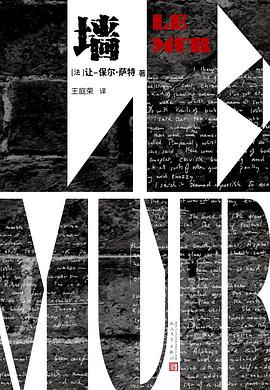
内容简介
《墙》所收的五篇中短篇小说提出了萨特存在主义哲学的一个基本命题:人是自由的,人的命运取决于自己的选择。五个故事分别将人物置于五种荒谬的,甚至是极限的处境,让他们在困境中自由选择,自由行动。作者一方面揭露这种种存在的荒谬性,同时让读者领会到,这完全是主人公自我选择的后果。他们也可以有其他的选择,不同的选择可能给他(或她)带来完全不同的生活和命运,因此人的命运其实掌握在他自己手中。人生充满各种可能,没有神灵事先作出安排,也没有人能代替他做出决定,他的命运是他自己选择的。显然,萨特认为一切取决于个人的意志,自由是绝对的。
作者简介
让-保尔・萨特(1905―1980)
二十世纪法国声誉最高的思想家、哲学家、文学家和社会活动家,诺贝尔文学奖获得者。他是战后法国知识界的一面旗帜,享有“世纪伟人”“世纪的良心”之盛誉。他的学说对法国及整个欧美的思想文化界曾产生深刻影响,至今具有强大的生命力。
Content introduction
The five novellas collected in The Wall put forward a basic proposition of Sartre's existentialism philosophy: man is free, and man's fate depends on his own choice. Each of the five stories puts the characters in five absurd and even extreme situations, allowing them to choose freely and act freely in difficult situations. The author exposes the absurdity of this existence while at the same time making the reader understand that it is entirely the result of the protagonist's own choice. They can also have other choices, different choices may bring him (or her) a completely different life and destiny, so the fate of the person is actually in his own hands. Life is full of possibilities, no God has made arrangements in advance, and no one can make decisions for him, his fate is his own choice. Obviously, Sartre believed that everything depended on the will of the individual and that freedom was absolute.
About the author
Jean-paul Sartre (1905-1980)
The most famous thinker, philosopher, writer and social activist in France in the 20th century, winner of the Nobel Prize in Literature. He is a banner of the French intellectual world after the war, enjoying the reputation of "the great man of the century" and "the conscience of the century". His theory has had a profound impact on the ideological and cultural circles of France and the whole Europe and America, and has strong vitality up to now.
 热门标签
热门标签












 书单推荐
书单推荐